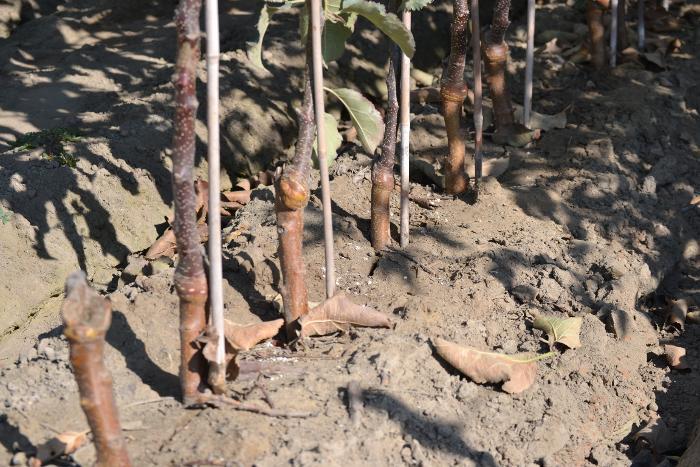Observations and Opinions about the Geneva® Rootstock Series

Observations and Opinions about the Geneva® Rootstock Series
Observations and Opinions about the Geneva® Rootstock Series
On a trip visiting the nurseries I work with in Washington in Fall of 2012, I tried to focus on the new Geneva roots. For the past several years, many researchers have been touting them as if they are "the next best thing to sliced bread!" This may turn out to be the true in the long-run, but in the meantime, they have generated so much over-excitement and over-expectation in both new and established growers, that demand for them has so far out-paced production that it has been difficult varieties speculatively budded onto them for sale to growers. Although this has been improving since 2012 many Geneva roots produced are being contracted to orders placed 2-3 or more years in advance, and very little is ever budded without a pre-order or contract in place. If speculated on, they are budded onto a "sure sale" variety and usually get sold as soon as they appear on an availability list. So, new growers who may be getting advice to plant only Geneva, should take the real facts of life into account, and NOT expect to find readily available trees on any of the roots at this point in time.
The rootstock nurseries are still in a steep learning curve in how to produce the Geneva rootstocks--- some of them have production problems that have to be overcome or learned to live with. While tissue culture is a viable alternative, prices for tissue culture plants are much higher and nurseries must learn how to deal with the typically small tissue cultured plants in the nursery field. In the fruit tree nursery, the nursery growers have their own learning curve in producing trees on the Geneva roots--- from dealing with small tissue cultured plants to keeping finished trees from breaking at the bud union on some Geneva clones. In general, I would say that most of the Geneva clones I have experience with appear to have a more brittle nature than the older EMLA rootstocks, a characteristic that both nursery growers and fruit growers will have to learn how to deal with in some fashion.
Don't get me wrong! I believe that many of the Geneva rootstocks will prove to be excellent rootstocks for the future. However, as with any "new" technology there are many things that need to be learned about it. Cynics, such as myself, believe that we often are told about the good things first, then with time and experience we learn about the bad things. Over time, we make the final judgments whether something "new and better" truly is such and how we have to change our methods to live with some of the lesser qualities that we may find disheartening. The Geneva's, as well as other newly bred rootstocks from other parts of the world which are just starting to be introduced, will eventually make themselves successes or failures on their own merits, which will be discovered over years of testing and grower experience. Some will fail, others will succeed.